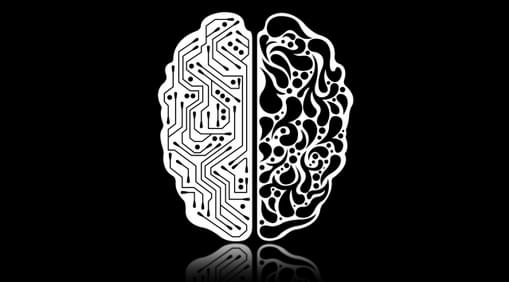Cybersecurity: The Dichotomy of AI
Categories: Technology
6 July 2018
Author: Karthik Reddy

Artificial Intelligence (AI) is transforming the world as we know it. It’s not just the tech world that’s feeling the heat. AI has seamlessly become a part of our everyday lives without us even realizing it. Siri or Cortana, anyone? And this transformation, unlike what it may feel like, has not been sudden. If you’ll remember the Microsoft Office Assistant (or Clippit), we welcome technology that makes work easier. Today, no field is out of reach for the mighty AI.
According to Emarsys Research, 60% of retail and e-commerce brands will implement AI in 2018. Think that’s a stretch? Consider of all the customer service chatbots you’ve interacted with in the recent past and you will realize it’s happening right now. In fact, by 2020, research by Gartner predicts that 85% of customer interactions with businesses will be managed without human intervention. With the rapid pace at which AI technology is improving and the efficiency and ease that they promise, this hardly seems surprising.
The Good
Powering customer service, however, is not all that artificial intelligence is doing. Product recommendations, advertisements, photo recognition, customer relationship management (CRM) - AI is causing quite a bit of stir in business functions. It can even write personalized marketing content for you. Apparently, it can do it better, too. Media giants such as The Washington Post and Associated Press are already using AI to keep the world up to speed on the latest news. If it sounds like AI is invading every facet of modern life, that’s because it is. While life might get easier, it does not certainly mean safer. The thing is, AI, the narrow artificial intelligence we use today is just a tool. A highly advanced and adaptive tool, but nothing more. So, when you place this tool in the wrong hands, it can wreak havoc.
The Bad
According to a report by 26 experts from around the world – and spanning many different industries – an unrestrained growth of artificial intelligence could enable new forms of cybercrime, political interference, and even physical attacks in the next five years. It will become increasingly important to have an adequate anti-malware solution and a good VPN to protect you from advanced, AI-Based forms of cybercrime. We’ve already witnessed multiple instances of the internet’s misuse for criminal ends. The infamous US election of 2016 saw a huge response to Russian cyber interference of the election results.
Allegedly, most of the meddling has been achieved by professional Russian troll farms working around the clock. Imagine what bots smart enough to operate a social network account can do to harvest user data and influence certain points of view. The same year, in another part of the world, it was revealed that North Korean hackers conducted a cyber theft of $81 million from Bangladesh Bank. The theft became possible by developing advanced AI tools which allowed them access to the SWIFT global payment network. While governments are rightfully wary of AI technology, 'regular' individuals with sensitive personal information out in the digital world, also stand to lose a lot. In a sense, advanced technology lowers the entry barrier for internet crimes, while keeping the stakes frighteningly high.
The Solution
But even if AI is partly to blame, it can also be the solution. This is where engineers come in. Developing tools to bridge the cybersecurity gap and implement machine learning to better detect nefarious activity. AI is our best bet for dealing with cybercrime. Typically, we rely on human cognitive skills, which are subjective and prone to error. Adaptive AI platforms are more efficient and can help neutralize looming threats in our devices and digital data.
IBM’s Watson is already at it by teaming up with SparkCognition, a cognitive security analytics company, to take down cybercriminals. Darktrace, a company with the world’s leading enterprise-grade AI, modelled their technology on the human immune system. In an increasingly interconnected world, AI is indispensable. Whether it is going to serve us well or not is our responsibility.




